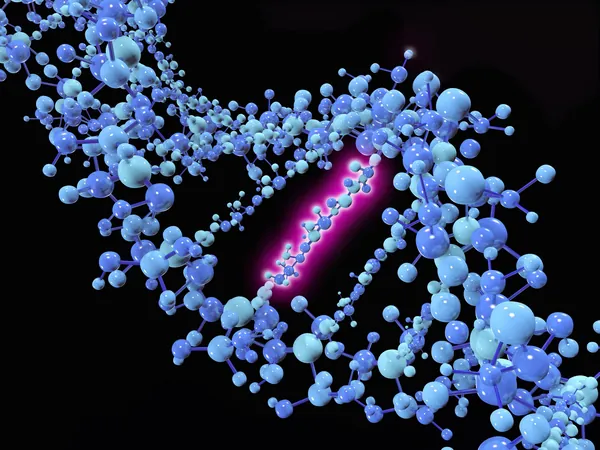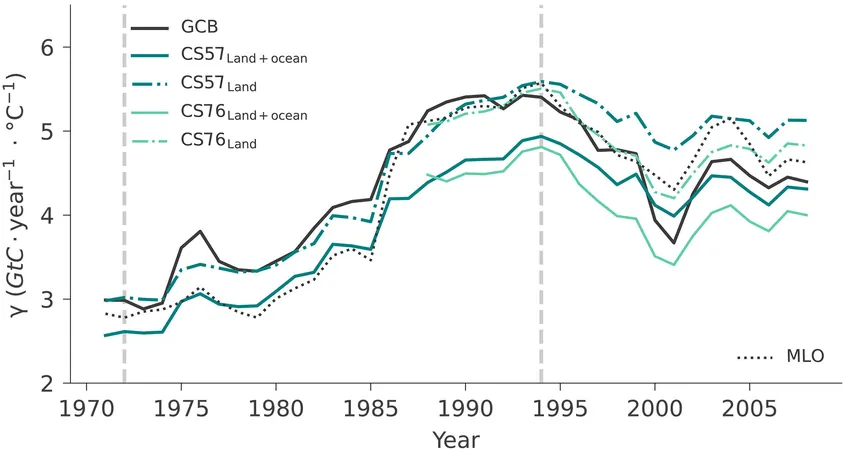
Breakthrough Drug ACBI3 Emerges as Game-Changer Against KRAS Mutant Cancers!
2024-09-25
Introduction
In an exciting development, researchers from the University of Dundee and Boehringer Ingelheim have unveiled a cutting-edge small-molecule drug named ACBI3, demonstrating effectiveness against a staggering 13 of the 17 most prevalent KRAS mutant-driven cancers. This groundbreaking study is detailed in the renowned journal Science.
Significance of KRAS Mutations
KRAS mutations play a pivotal role in 17 to 25 percent of all cancer cases. Unfortunately, existing treatments typically focus on just one type of KRAS mutation, specifically G12C, leaving approximately 50 percent of KRAS mutation-affected patients without dedicated treatment options. ACBI3 aims to change this narrative dramatically.
A Revolutionary Approach
Unlike traditional therapies that aim to inhibit mutant KRAS activity, ACBI3 represents a revolutionary approach by targeting the degradation of the mutant genes themselves. Developed through a collaborative effort led by Professor Alessio Ciulli at the University of Dundee's Centre for Targeted Protein Degradation (CeTPD), ACBI3 is anchored in a unique class of small molecules known as PRoteolysis TArgeting Chimeras (PROTACs).
The Challenge of KRAS Mutations
KRAS mutations are notoriously linked to aggressive cancers, such as pancreatic, colorectal, and lung cancers, which have proven to be exceptionally resilient against current treatment modalities. With this in mind, KRAS has become one of the most intensely studied targets for new cancer therapies.
ACBI3's Impressive Efficacy
ACBI3 has demonstrated an impressive ability to rapidly eliminate a wide array of KRAS mutants while maintaining high potency and selectivity. In preclinical trials with mouse models, the drug induced significant tumor regression, highlighting its potential as a transformative treatment option.
Mechanism of Action
The mechanism that underlies ACBI3's effectiveness is rooted in the innovative use of PROTACs. Each PROTAC molecule features two "prongs": one that binds to KRAS and another that recruits an E3 ligase, a critical component of the cellular disposal system known as the ubiquitin-proteasome pathway. This interaction tags the mutant KRAS protein for degradation, effectively rendering it inert and eliminating its role in cancer progression.
Key Researchers and Collaboration
The successful collaboration involved several key researchers, including co-first authors Johannes Popow, Christiane Kofink, Andreas Gollner from Boehringer Ingelheim, and William Farnaby from the University of Dundee. Their ambitious goal was to create protein degraders with the ability to address a wide range of KRAS mutations, which are notoriously complex.
Innovative Sharing of ACBI3
In a groundbreaking move, Boehringer Ingelheim has chosen to share the ACBI3 compound with the broader research community through its opnMe® portal, granting free access to this innovative drug. This unprecedented step is designed to stimulate innovation and collaboration in the field of cancer research.
Conclusion and Future Directions
As excitement builds in the scientific community, ACBI3 represents a beacon of hope for millions of cancer patients grappling with KRAS mutations, potentially paving the way for more effective and inclusive cancer treatments in the future. Stay tuned for more updates on this revolutionary development!









 Brasil (PT)
Brasil (PT)
 Canada (EN)
Canada (EN)
 Chile (ES)
Chile (ES)
 España (ES)
España (ES)
 France (FR)
France (FR)
 Hong Kong (EN)
Hong Kong (EN)
 Italia (IT)
Italia (IT)
 日本 (JA)
日本 (JA)
 Magyarország (HU)
Magyarország (HU)
 Norge (NO)
Norge (NO)
 Polska (PL)
Polska (PL)
 Schweiz (DE)
Schweiz (DE)
 Singapore (EN)
Singapore (EN)
 Sverige (SV)
Sverige (SV)
 Suomi (FI)
Suomi (FI)
 Türkiye (TR)
Türkiye (TR)